Partners
1) Acondicionamiento Tarrasense Associacion (LEITAT), Spain.
 |
LEITAT is a Technological Centre specialized in production technologies. LEITAT develops R&D activities in the areas of materials sciences, environment, surface treatments, biotechnologies and renewable energies with deep knowledge and experience in technological transfers to several industrial sectors. LEITAT takes part each year in many projects financed by the regional and national governments, participates in projects co-funded by the European Commission, and develops private R&D projects funded by industrial partners. LEITAT is recognised by the Spanish Government as a CIT (Centre of Technological Innovation) and is one of the 5 Technology Centres that is accredited by the Regional Government of Catalonia. Finally, it is a member of FEDIT (Federation of Technological Centres in Spain) and the IT Network of the Catalan Regional Government.
|
Role:
LEITAT is the responsible of the administrative management of the project. It is the coordinator of WP1 (Project Management); it manages overall project activities in collaboration with ICRA and contributes to some of the WPs.It contributes to the tasks of WP3 (Water Cycle Diagnose) such as identification and quantification of overall water fluxes in the demo site. LEITAT is also the leader of WP4 (Preliminary Technological Tests).
LEITAT is the responsible of the administrative management of the project. It is the coordinator of WP1 (Project Management); it manages overall project activities in collaboration with ICRA and contributes to some of the WPs.It contributes to the tasks of WP3 (Water Cycle Diagnose) such as identification and quantification of overall water fluxes in the demo site. LEITAT is also the leader of WP4 (Preliminary Technological Tests).
2) Catalan Institute for Water Research (ICRA), Spain.
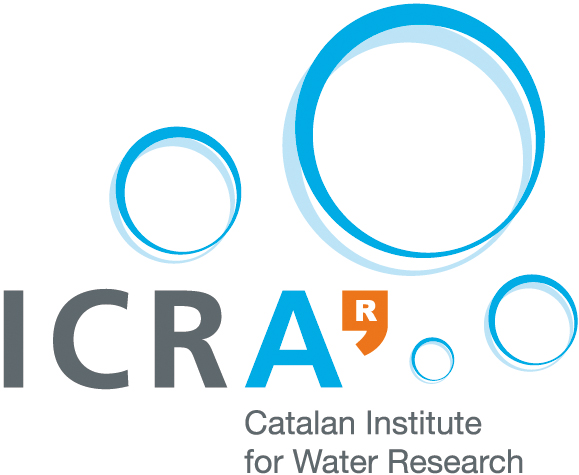 |
ICRA is a multidisciplinary research centre dealing with the integral water cycle, hydraulic resources, water quality and treatment and assessment technologies for treatment, recycling and reuse of water, especially in conditions of scarcity. Together with UdG, UIB and CSIC, ICRA is promoter of the International Campus of Excellence "Campus e-MTA: Euro- Mediterranean Tourism and Water Campus”, awarded by the Spanish Government.
Two main areas of ICRA are involved in demEAUmed:
The Technology and Assessment (T&E) Area which focuses on mathematical models and knowledge based systems for the integrated management of the Urban Water System. On the other side, energy optimization, environmental impact assessment, study of process mechanisms, scale-up and technology transfer are applied to several water treatment technologies.
The Water Quality (WQ) area aims to define the concentrations, fate and mechanisms of action of micropollutants and pathogenic elements in natural and reused waters.
|
Role:
ICRA is the responsible of WP2 (Scientific Management); it manages overall project activities (especially the technical aspect) in collaboration with LEITAT and it contributes to some of the WPs. ICRA provides characterization of DEMO site waters, it contributes to the roadmap for a closed and safe water cycle in Samba demo site and defines key decision making indicators in WP3 (Water Cycle Diagnose). In WP4 (Preliminary Technological Tests), it performs technological tests on Smart Air MBR, and does the commissioning of it in WP6 (Technological Demonstration). Also, it is the leader of WP8 (Integrated Water Management: Decision Support Tool and Modelling).
3) Stichting IHE Delft (UNESCO-IHE), Netherlands.
 |
The IHE Institute for Water Education continues the work that was started in 1957 when a postgraduate diploma course in hydraulic engineering was first offered to practicing professionals from developing countries. To date it developed into centre of excellence in research, education and capacity development activities in water related fields. The Institute is the largest water education facility in the world accredited for MSc and PhD degrees. Whilst the UNESCO-IHE Institute for Water Education is prominently involved in its own research and education on the Delft premises, it is also instrumental in strengthening the efforts of other universities and research centres throughout the world, which increase the knowledge and skills of professionals working in their respective water sectors. The three academic departments represent Institute for Water Education's main themes, which reflect today's global water challenges: water security, environmental integrity, urbanisation, water management and governance, and information and communication systems. |
Role:
UNESCO-IHE is the coordinator of WP7 (Environmental and Socio-Economical Assessment). It defines the guidelines for closed and safe water cycle at the DEMO site and it's responsible for the definition of key decision making indicators in WP3 (Water Cycle Diagnose). In WP4 (Preliminary Technological Tests), it does technological tests for the UVOX technology.
4) Fraunhofer-Gesellschaft Zur Foerderung Der Angewandten Forschung E.V (Fraunhofer), Germany.
 |
Fraunhofer is one of Europe's leading organisations in the field of applied research, development and consulting. With more than 60 research institutes and a staff of more than 22,000 persons, it cooperates closely with industry, mainly SME-sized, in order to achieve a rapid and effective transfer of research results into industrial practice and products. As an interdisciplinary development specialist within the Fraunhofer-Gesellschaft, the Fraunhofer Institute for Interfacial Engineering and Biotechnology (IGB) is accelerating the consistent integration of scientific knowledge of all fellow institutes within its own developmental expertise. Today, IGB has about 300 employees and an annual budget of more than €18 million. The institute offers R&D solutions in the fields of medicine, pharmacy, chemistry, the environment and energy. Their competences comprise Interfacial Engineering and Materials Science, Molecular Biotechnology, Physical Process Technology, Environmental Biotechnology and Bioprocess Engineering, as well as Tissue Engineering. The IGB offers solutions from market analysis through research & development till the industrial product. |
Role:
It assists collecting the analytic data - scientific backup - and provides evaluation criteria and participating in the roadmap for a closed and safer water cycle in Euro-Mediterranean resorts in WP3 (Water Cycle Diagnose). Fraunhofer is responsible for the Electro-chemical ozonation and adsorption process in WP4 (Preliminary Technological Tests), and collaborates with EUT and SICO in the construction, installation and integration of the DEMO site in WP6 (Technological Demonstration).
5) Adasa Sistemas, S.A.U. (ADASA), Spain.
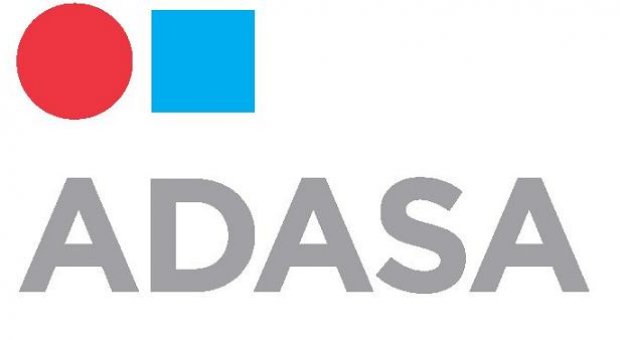 |
ADASA SISTEMAS is a system engineering company and Information and Communications Technology (ICT) solutions provider specialised in sector-based and technological solutions and applications for Integrated Water Cycle Management (IWCM) and the environment. Established in 1988, it belongs to the Systems and Technology Business Unit of the Spanish COMSA EMTE Group. Being a Medium Enterprise with more than 200 employees, it can provide a wide range of engineering and consulting services, with special emphasis on sensors manufacturing, development of information systems, installation of automation and control systems, implementation of hydrological and basin management systems, and design and maintenance of environmental quality control systems. The company takes a special interest in IWCM techniques to deal with surface and groundwater hydrology, water supply, sewage systems and waste water treatment. ADASA has been involved in R&D activities from 1992, mainly based in the development of on-line water quality control systems, having more than 20 years of experience in bridging between R&D and the needs of the water market ADASA is present in Latin America, Europe, Australia and North Africa. |
Role:
ADASA is the coordinator of WP5 (Monitoring and Control Systems); it coordinates data acquisition System implementation. In WP6 (Technological Demonstration), it constructs installation and commissioning sensors network, monitoring and control system to the DEMO site. Also, it provides data to DSS systems in WP8 (Integrated Water Management: Decision Support Tool and Modelling).
6) Eilenburger Elektrolyse- und Umwelttechnik GmbH (Eilenburger Elektrol), Germany.
 |
Eilenburger Elektrolyse- und Umwelttechnik GmbH (EUT) is a developer and manufacturer of electrochemical equipment. It was founded in 1992 by researchers from industry and universities. The production is orientated to innovative technologies namely on process research, design and manufacturing of electrochemical reactors. EUT has customers in Germany, throughout Europe, USA and Asia. The company has much expertise in gas evolving electrode constructions and reactors for electrochemical production processes. New products are high efficient membrane cells for peroxodisulfate production, reactors with rotating cathodes for complete recycling of microetchant solutions and other purposes and special designed cells for water disinfection. EUT has about 40 patents on reactor design and electrochemical processes. |
Role:
EUT is the coordinator of WP6 (Technological Demonstration); it is responsible for the construction, installation, integration, safety and start-up of the whole DEMO site. It will re-design and build the adsorption, electrolytic ozonation and/or photoelectroFenton reactors according to the requirements and will install it in the demo- site facility as well as building electrocoagulation cell and flock-separation at DEMO scale. EUT is also responsible the Design & Layout of the whole DEMO site in WP4 (Preliminary Technological Tests). In WP5 (Monitoring and Control Systems). EUT will provide data specifying the algorithm of their units necessary to manage the interfaces and to enable the overall process control.
7) SICO Technology GmbH (SICO Technology GmbH), Austria.
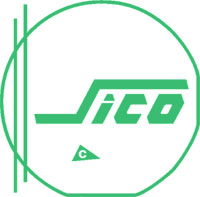 |
SICO Technology GmbH is an SME employing 41 people. SICO manufactures and processes fused silica, fused quartz, various types of silicon and ceramic products for various industries that include semiconductor, optical, automotive and aerospace. One of the company's USPs (unique selling points) is that they can make extremely pure quartz glass, which is needed for both semiconductor and optical applications. The company is based in Bad Bleiberg (Austria) with production and sales & service facilities and international distributors. Through their competence in quartz-glass equipment design SICO has developed a new plasma based UV-light-source that can emit poly-chromatic light with any lamp geometry. The company has prior experience in EU funded projects (Research for the benefit of SMEs) as the exploitation manager of PlasLight (FP5), the coordinator of Light4CleanWater and SolChemStore (FP7). Further, they are partners in leading nationally funded research projects with outsourced research performers. |
Role:
Sico provides data specifying the algorithm of their units necessary to manage the interfaces and to enable the overall process control in WP5 (Monitoring and Control Systems). Also, it will collaborate with EUT and will provide photovoltaic solar panels as a driven force of water treatment technologies and artificial lights in UV-based technologies, such as microwave-driven 254nm-UV-light sources of WP6 (Technological Demonstration).
8) Idropan Dell Orto Depuratori Srl (IDD), Italy.
| IDD started its activities in 1981, Idropan Dell'Orto is born as a family business in 1969 and in 1981 becomes SRL, and it is then entered in the registrar of companies in 1989. Idropan performs feasibility studies, design, assembly, sales and maintenance of water purifiers in general, plants for the recovery and refining of metals and other technological equipment for water treatment. Idropan in its forty years of experience in water treatment has always thought to provide its customers with the best equipment for water treatment technology that makes it possible to solve case problems related to every use. The company is also part of Silhorko Eurowater group, with whom it has relations since proximately 30 years and with whom it deals and distributes the best technologies on the market. All these years it has developed a line of standard products and special products, Plimmer of which will be part of. Special products come direct from the development of niche technologies as well as the acquisition of licenses and exclusive representatives of technology companies leading carriers. In 2001, the company collaborated with Idropan Arpa Piemonte, Provincia di Novara and Novara Industrial Association of the realization of the book "Guidelines for implementing the environmental management". |
Role:
IDD participates in the water cycle diagnose for what involved in tertiary treatment and contributes to the roadmap for the closed water cycle in Euro-Mediterranean resorts of WP3 (Water Cycle Diagnose). It does the tests of Plimmer technology against range of pollutants in order to obtain recycles of water before at lab scale in WP4 (Preliminary Technological Tests) and then builds this technology and implements it on site as part of WP6.9) Alchemia-Nova OG - institute for innovative phytochemistry & closed loop-process(alchemia), Austria.
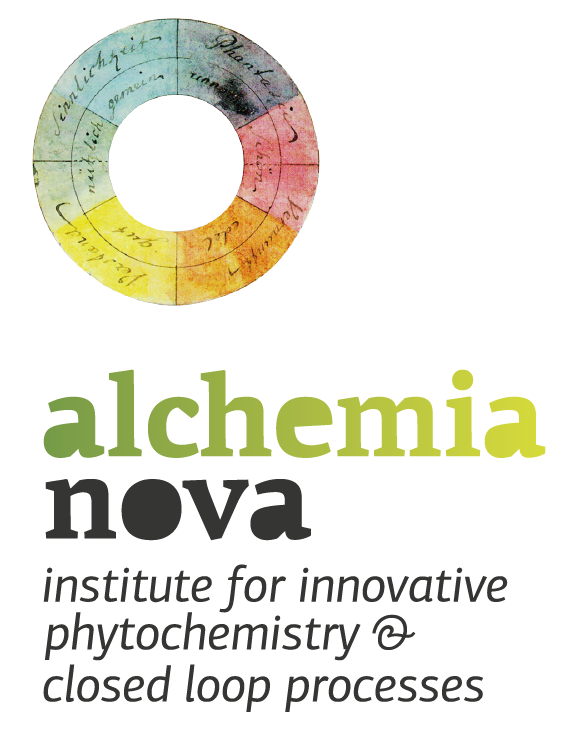 |
ALCHEMIA is an institute based in Austria. It provides innovative strategies for a sustainable economy, innovative phytochemistry and closed loop processes, circular flow economy, bio- cascading and bio-refinement. Also, it manufactures new products based on phytochemicals, and performs consulting services regarding process optimization, sustainable product design, and environmental impact assessment, processing-chain analysis of renewable resources and proposal of optimization methods. Moreover, it does research on biogenic substitutes for fossil-resource based products. |
It performs laboratory tests to inform best design and specification of the demo unit of WP3 (Water Cycle Diagnose). In WP5 (Monitoring and Control Systems), it produces and executes a monitoring plan for the water demo unit and foresees proper technical control devices. ALCHEMIA also contributes in WP6 (Technological Demonstration), it oversees construction and installation of plant based water and indoor air treatment demo unit including providing the Green Walls technology. Finally, the company will prepare papers for publication in relevant journals and channels, participation in several dissemination events, special focus on German speaking audiences which is a contribution for WP9 (Dissemination).
10) Radtke Manfred (Radtke Biotechnik), Germany.
| Radtke Biotechnik was one of the first producers of small decentralized grey-water treatment systems in Germany. On the other hand, it produces special plant based units to humidify air and calculate the number of plants needed for special applications at different sites. The expertise lies in the knowledge of plants, their ecology and their suitability for incorporation into functional technical systems. |
Role:
It collates available information, published and from practice, regarding suitable plant compositions for indoor water and air treatment unit of WP4 (Preliminary Technological Tests). Also, it assists in the proper construction of the indoor water and air treatment unit of WP6 (Technological Diagnosis). Finally, it contributes to WP10 (Exploitation) by assessing market opportunities and barriers for technology uptake of plant based water treatment and air treatment unit in key markets.
11) Wapure International gmbh (UVOX), Germany
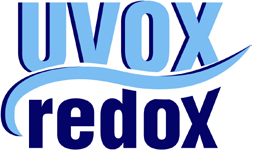 |
Wapure International was founded by Hans Berson in 1996 with the objective of developing environmentally friendly, healthy and non-residual water purification systems in the areas of ultraviolet radiation and ozone oxidation and making these technologies available for domestic applications and smaller budgets. Barbara Hartenstein-Berson MBA took on the management of Wapure International in 2003, but Hans Berson remains responsible for research and development. |
Role:
UVOX designs and constructs the plant for technological tests for the UVOX technology of WP4 (Preliminary Technological Tests). In WP6 (Technological Demonstration), it collaborates with all the partners in the integration and start-up of the UVOX plant in the DEMO site.12) Hosa Hotels SL (SAMBA HOTELS), Spain.
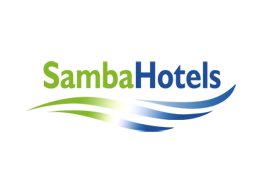 |
Samba Hotels is a 3 hotel chain situated in Lloret de Mar and Blanes (coastal region of northeastern Spain). Hotel Samba, in Lloret de Mar, few meters from the beaches and the town centre, is a large resort with 441 rooms (Double, single, suites and apartments), conference rooms, bar, restaurant, games room, large terrace, green areas and exterior pool. Surf Mar is a certified hotel in family tourism, located in the heart of the area Fenals in front of the beach 900 and from the center of Lloret de Mar. It offers 216 rooms with sports facilities like tennis court, basketball court, table tennis and mini golf. The ACACIAS RESORT & SPA consists of the Hotel Acacias existing and Apartments and Suites Acacias. The suites and apartments are high quality and comfort near the beach in Lloret de Mar and a few meters from the center of Lloret de Mar. Mar Ski is a 120 rooms family hotel located in front of the beach to 500 meters center of Blanes. |
It is the demonstration site; the leader of WP3 (Water Cycle Diagnose), it cooperates in the water cycle diagnose in the DEMO site, and responsible for the roadmap for a closed and safe water cycle in the DEMO site.
13) EMWIS Technical Unit (Euro-Mediterranean Information System on the know-how in the Water sector), France.
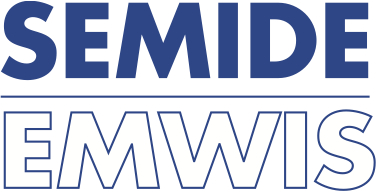 |
The Euro-Mediterranean Information System on know-how in the Water sector (EMWIS) is an initiative of the Euro-Mediterranean Partnership. EMWIS provides a strategic tool for exchanging information and knowledge in the water sector between and within the 43 Euro Mediterranean countries of the Union for the Mediterranean. The information is made available by "a National Focal Point" (NFP) in each country and by a central "Technical Unit", operational since November 1999. Today 22 National Focal Points (NFPs) have been nominated by the national water authorities of their country. EMWIS Steering Committee is composed of the water directors from 13 countries. Dissemination of information and results on research activities is among its priorities, together with training, data management, documentation and institutional management. EMWIS works closely with the European Environment Agency (EEA) and with UNEP Mediterranean Action Plan in particular for information and data management. It is also a supporting organisation for the secretariat of the Union for the Mediterranean area. |
Role:
SEMIDE is the leader of WP9 (dissemination); it conducts the communication and dissemination plan and performs external communication and dissemination activities.
SEMIDE is the leader of WP9 (dissemination); it conducts the communication and dissemination plan and performs external communication and dissemination activities.
14) Lgi Consulting (LGI), France.
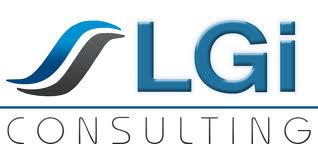 |
LGI is a French consultancy, founded in 2005. It offers the following services: project development and management, in particular for EU projects, communication and dissemination, IT developments (web-based mainly) and strategy and innovation studies. In strategy, LGI is able to cover altogether technologies (screening, roadmapping, etc.), products (marketing, definition, etc.) and market assessments (studies, surveys, etc.) and to link all these dimensions together. LGI has a positioning in high tech sectors: energy, transport, security, and environment. LGIs approach is usually multidisciplinary and European. LGIs consultants have competences in law, finance, engineering, IT and are fluent in French, English, German, Spanish, Romanian, Portuguese, Greek, Czech. LGI has a specific cross-cutting expertise on smart grids and smart cities, from energy & electricity to transport and water. LGIs view in environment spans the European policies for environment and energy, research and education, markets, environmental regulations, European financing schemes, etc. LGI has years of experience with EU projects, particularly in Energy. It is currently coordinating two EU projects in energy and security, and involved in more the ten other projects. |
Role:
LGI is the leader of WP10 (exploitation), it conducts the market analysis, exploitation and business plan and knowledge management plan.
15) JRC -Joint Research Centre- European Commission (JRC), Belgium.
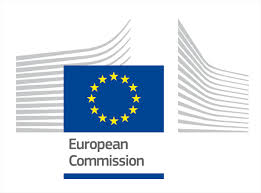 |
The Joint Research Centre (JRC) is a Directorate-General of the European Commission under the responsibility of Máire Geoghegan-Quinn, European Commissioner for Research, Innovation and Science. The mission of the JRC is to provide customer-driven scientific and technical support for the conception, development, implementation and monitoring of EU policies. As a service of the European Commission, the JRC functions as a reference centre of science and technology for the Union. Close to the policy-making process, it serves the common interest of the Member States, while being independent of special interests, whether private or national. The mission of the Institute for Environment and Sustainability IES is to provide scientific technical support to the European Union's policies for the protection and sustainable development of the European and global environment. |
JRC contributes to WP7 (Environmental and Socio-Economical Assessment); it identifies current water quality regulations at European/National/Regional level that are related to the water uses of the DEMO site, it performs analysis of existing barriers in legislation and potential incentives in water related policies at EU level regarding sustainability of water resources and innovation and gives recommendations for existing and future water quality regulations. Furthermore, it has an important contribution to WP9 (Dissemination), it runs dissemination activities involving policy-makers and policy-supporting institutions.

 This project has received funding from the European Union’s Seventh Programme for research, technological development and demonstration under grant agreement No 619116.
This project has received funding from the European Union’s Seventh Programme for research, technological development and demonstration under grant agreement No 619116.